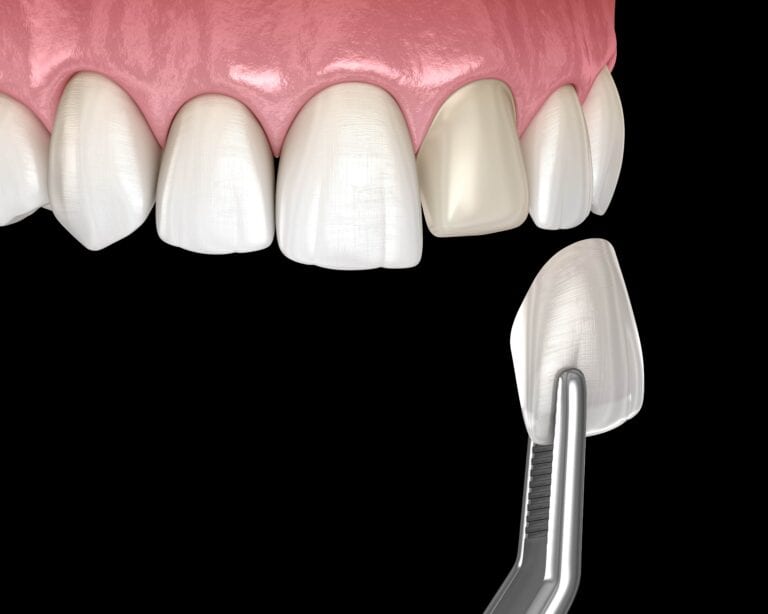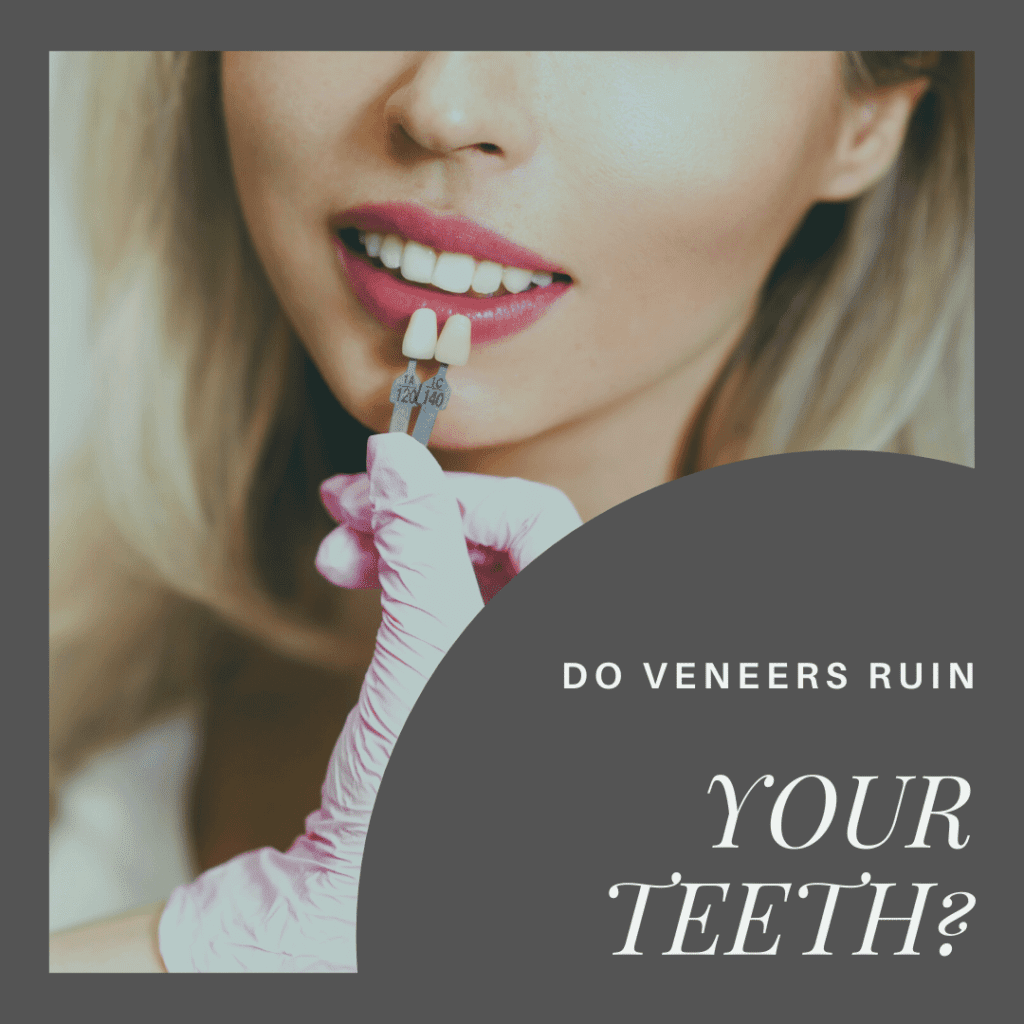Have you been thinking about getting veneers to improve the look of your smile? If so, you are not alone. In fact, veneers are so in-demand that they are the second most popular cosmetic dental treatment. Despite their popularity, however, some people still have some reservations about having veneers placed. The most common reservation is the fear that veneers can permanently damage the teeth. Is there any truth to this? To answer this question, we must first take a look at what veneers are and how they are placed. Then, we can evaluate how they affect the teeth and whether or not they cause long-term damage.
Veneers are thin tooth-shaped shells made from composite or porcelain. They are fabricated outside of the mouth and then cemented to the front side of visible teeth. Once applied to the teeth, veneers can fix a range of cosmetic concerns in order to improve the appearance of individual teeth and your entire smile. Veneers work well to correct:

- Stained teeth that don’t respond to whitening treatments
- Teeth with gaps between them or teeth that overlap
- Cracked, chipped, or otherwise broken teeth
- Teeth that are oddly shaped and/or unevenly sized
- Mild cases of crooked teeth
To place veneers, two dental appointments are generally needed. However, an in-office milling machine can allow for veneers to be placed within a single dental appointment. The first step to placing veneers is to prepare the tooth by shaving off a thin layer of enamel. This will be repeated depending on the number of teeth getting veneers. Then a dental impression or oral scan is taken of the mouth and used to fabricate the veneers. When a dental lab is used, this can take about 1-2 weeks. Once the veneers have been fabricated, they will then be cemented to the teeth.
The removal of a thin layer of enamel is what makes people worry that veneers can ruin their teeth. The truth is that only a very thin layer of enamel is removed simply to ensure that the veneer can be placed with a natural appearance that does not affect the structure of the bite. Porcelain veneers generally require some enamel removal, while composite veneers, low-prep, or no-prep veneers may not require any enamel removal at all. Still, all types of veneers are considered to be safe.
While veneers do not ruin your teeth, they are considered to be a permanent treatment. This is because enamel cannot grow back once it has been removed, so veneers will permanently alter the structure of your teeth. This just means that you will need to continue wearing veneers and have them replaced once they wear out or if they become damaged. Because veneers are a permanent treatment that cannot be reversed, you will want to make sure that you are ready to commit to having them. As long as you continue to practice good oral hygiene with veneers, your teeth and gums should remain in good oral health.
Overall, veneers do not ruin your teeth and can actually provide a range of cosmetic and functional benefits. However, it is important to find a cosmetic dentist with experience in placing veneers to make sure the job is done correctly.




